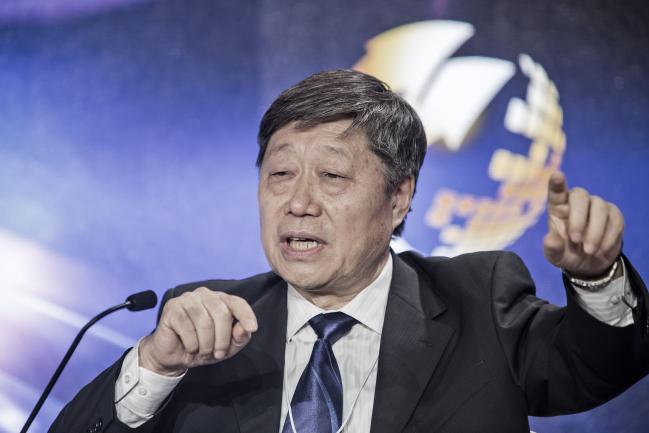(Bloomberg) -- Executives from both China and the U.S. are becoming increasingly wary of traveling after Huawei’s chief financial officer was arrested this month in Canada.
The Dec. 1 arrest of Meng Wanzhou, chief financial officer of Huawei Technologies Co., has Chinese business people worried they could be next while Americans are growing concerned about retaliation. Meng has been detained at the request of the U.S. on charges of bank fraud related to violations of American sanctions on Iran, and a bail hearing is ongoing.
“I can understand why executives might be worried in response to having arrested the Huawei executive,” said William Zarit, chairman of the American Chamber of Commerce in China and senior counselor at The Cohen Group, a consulting firm. “Some executives that might be traveling to China feel like China might invoke some kind of regulation or unwritten regulation and might retaliate.”
Meng’s arrest as she switched planes in Canada is also causing Chinese executives to reconsider business travel to the U.S. Zhang Ruimin, chairman and chief executive officer of household appliance maker Haier Group, said that firms are concerned in particular because the U.S. and Canada haven’t provided clear reasons for Meng’s detention.
“It has created a shadow in everyone’s hearts,” Zhang, one of China’s best-known corporate titans, said in an interview in Qingdao on Monday.
U.S. trade officials have sought to prevent the Huawei spat from escalating, insisting that it’s a law-and-order matter and trade talks are proceeding separately. Top Chinese and American trade officials spoke by phone on Tuesday morning Beijing time, leading to some optimism that the Huawei case would be kept apart from a trade war that has seen tariffs levied on hundreds of billions of dollars worth of goods.
Still, multinational companies have become more nervous about sending executives to Beijing since the arrest, according to a Hong Kong-based risk consultant whose firm has seen an increase in inquiries about the risk of travel to China in the past week. The consultant didn’t want to be identified because the topic is politically sensitive.
The government of British Columbia on Sunday said it would reschedule a forestry trade mission to China.
Retaliation Worries
There is reason to be concerned. The People’s Daily, the official voice of the ruling Communist Party, warned on Dec. 9 that Canada would face a “much heavier price” if it didn’t immediately release Meng. Then, over the weekend, the foreign ministry warned of more actions after it summoned both the U.S. and Canadian ambassadors.
Besides any investigations into Iranian sanctions, Chinese executives must also be concerned about a renewed U.S. effort to clamp down on economic espionage. The Justice Department last month announced an initiative to bring more charges against Chinese entities that engage in stealing trade secrets.
Last week, unconfirmed social media reports said Cisco was restricting non-essential travel by U.S.-based employees into China. The San Jose, California-based maker of computer networking gear told Bloomberg that “an email was sent in error to some employees regarding travel to China and does not reflect Cisco policy. We have not implemented restrictions on travel and normal business travel to China continues.”
Front Lines
Technology firms in particular are on the front lines of the trade tensions between the world’s two biggest economies. Companies including Cisco Systems Inc (NASDAQ:CSCO). and Apple Inc (NASDAQ:AAPL). trade with, manufacture in and buy components from China, with executives traveling regularly between the two regions.
China has previously arrested leaders of multinationals based in other countries. In 2010, Rio Tinto (LON:RIO) Group executive Stern Hu was sent to prison in China for stealing trade secrets and taking bribes. In 2014, a court in China sentenced Mark Reilly, formerly the company’s top executive in the country, to three years in prison, though it suspended the sentence, the official Xinhua News Agency reported.
Asked about potential retaliation at a press briefing Dec. 7, Chinese foreign ministry spokesman Geng Shuang told reporters that China protects the rights of foreigners in the country, while also saying they should respect the country’s laws.
It remains unclear, however, how many executives are actually canceling trips even as they express concerns about the rising tensions.
“Huawei is definitely a topic of conversation,” said Tara Joseph, president of the American Chamber of Commerce in Hong Kong, an autonomous financial hub that is home to many U.S. companies that do business in the mainland. “But so far there’s no major worries about traveling to China from members.”
To contact Bloomberg News staff for this story: Peter Martin in Beijing at pmartin138@bloomberg.net;Rachel Chang in Shanghai at wchang98@bloomberg.net;David Tweed in Hong Kong at dtweed@bloomberg.net
To contact the editors responsible for this story: Daniel Ten Kate at dtenkate@bloomberg.net, Jodi Schneider
©2018 Bloomberg L.P.
